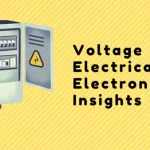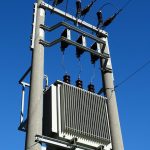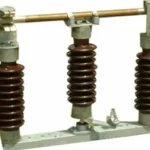Resistor Color Code Measurement: A Complete Guide
Resistor Color Code Measurement is an essential skill for anyone working with electronics. In today’s digital world, digital multimeters have become the go-to tool...
Auto Transformer: Structure and Working Principle
Auto Transformer differs slightly in structure compared to regular transformers. Understanding these differences is essential. In this article, we will explore the structure and...
Explanations of Short Circuit, Open Circuit & Closed Circuit
Short Circuit, Open Circuit, Closed Circuit are fundamental concepts in the study of electrical circuits. Understanding these terms is crucial for anyone learning about...
The History of Electricity: Key Pioneers and Discoveries
History of Electricity reveals that its discovery wasn't the work of a single individual. While the concept of electricity has been known for thousands...
AC Circuit Fundamental: Cycle, Amplitude, Frequency, Phase & More
In the world of electrical engineering, AC circuits play a crucial role in the transmission and distribution of electric power. Understanding the basic concepts...
Electrical Isolator: Function, Types, and Importance
An Electrical Isolator, also known as a disconnector, is a manual mechanical switch used to disconnect electrical equipment from the power system. Unlike circuit...
Primary Sources of Electrical Energy and Their Applications
Primary sources of electrical energy are the backbone of modern civilization, powering industries, homes, and essential services. These sources, ranging from conventional methods such...
Types of Fuse and Their Characteristics
Types of fuses are essential components in electrical systems, designed to protect circuits and connected loads from damage while ensuring safety. Fuse play a...
Solar Cells & Power Systems: How Solar Energy Powers Our World
The sun provides us with both light and heat, essential for life on Earth. Beyond these basic benefits, solar energy can also be harnessed...
Electrical Transformer Testing Methods and Standards
Electrical Transformer testing is a crucial aspect of ensuring the reliability, efficiency, and safety of power systems. These tests validate the operational integrity of...
Wattmeter Definition, Construction, Working Principle & Application
Wattmeter is essential instruments used to measure the real power consumed by electrical devices. Before diving into the details of wattmeters, it’s crucial to...
What is a turbine? Types, Functions & Applications
What is a turbine: Turbines are critical machines used in various industries to convert kinetic, potential, and thermal energy into mechanical energy. From powering...







